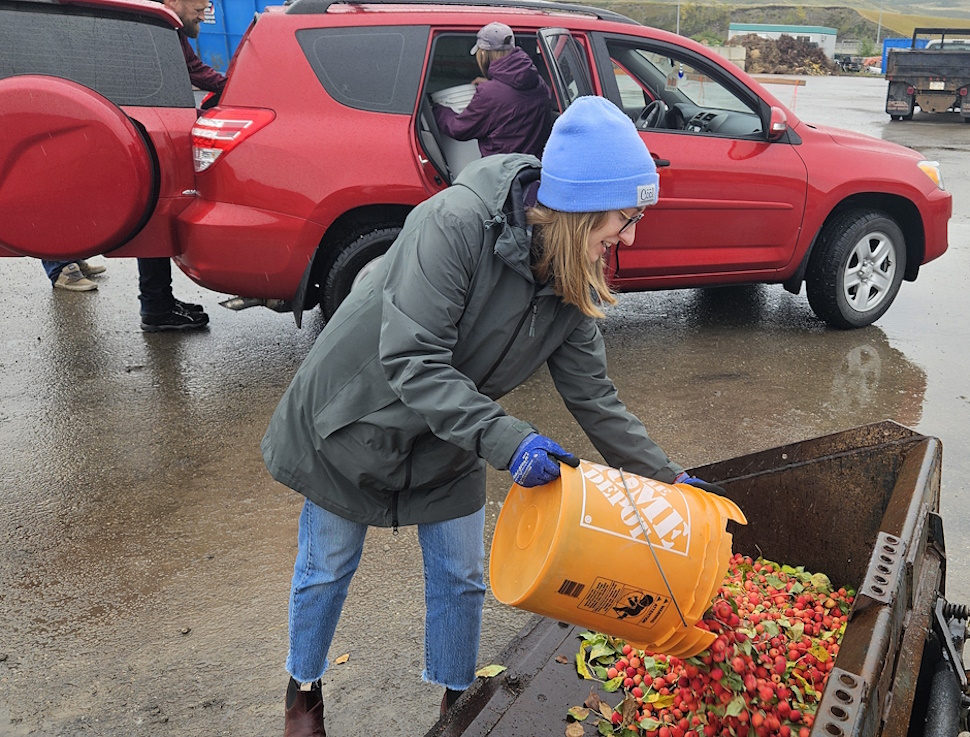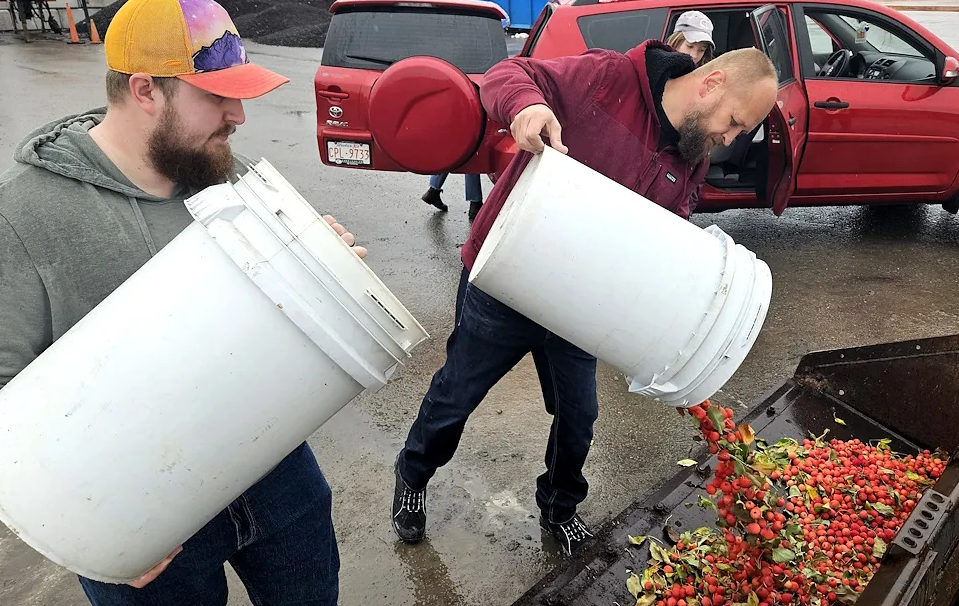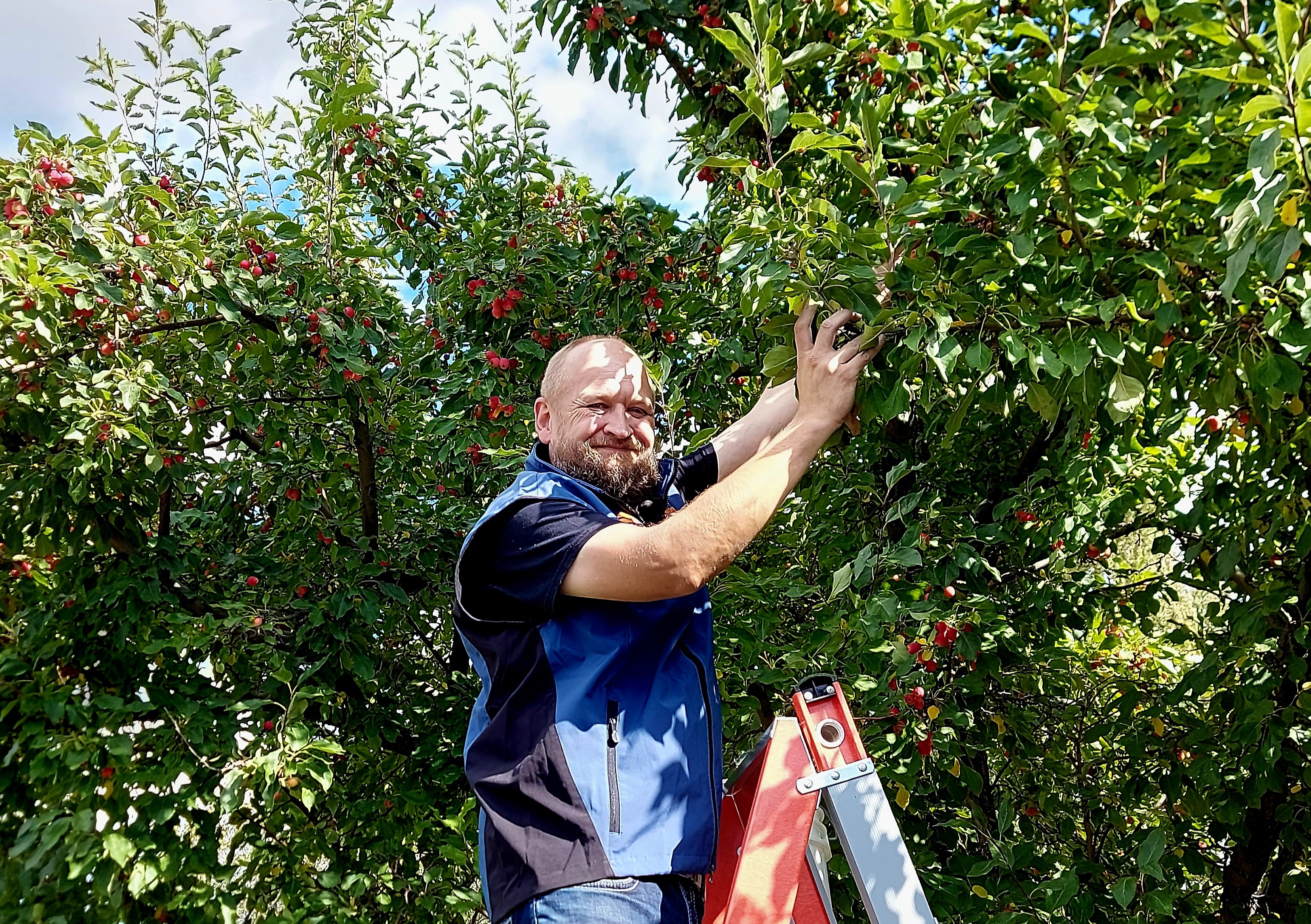After a successful debut in 2024, Cochrane’s Community Tree Fruit Round-Up is back—and organizers hope it will yield even more fresh fruit for food banks and wildlife rehabilitation, while reducing the potential for unwanted wildlife encounters in local neighbourhoods.
The initiative encourages residents to collect fruit from their trees and drop it off at a designated location. Fruit that is freshly picked will be donated to the Cochrane Food Bank, Îyâhrhe Nakoda Food Bank, and Helping Hands food sheds. Fallen fruit, which can't be used for human consumption, will go to the Cochrane Ecological Institute (CEI) to help feed injured and orphaned wildlife.

“The Community Tree Fruit Round-Up made an incredible impact in its first year,” said Trish Kluane, Manager of Parks and Open Spaces. “Residents came together not only to reduce wildlife attractants but also to support local food banks and wildlife rehabilitation efforts. We’re excited to build on this success and make an even greater difference in our community this year.”
The 2025 collection events will be held August 23, and September 6, 13, and 20, from 12 to 3 p.m. at the Cochrane Lagoon site on Bow Bend Way. Volunteers will be on hand to sort the fruit and ensure it gets to the right destination.
Hendrik Bösch, of Wildlife Coexistence Cochrane, a key volunteer and one of the early organizers, says the program grew out of a grassroots effort to address an overlooked concern: the abundance of crabapple trees that attract wildlife to Cochrane neighbourhoods.
“In 2023, I started volunteering with the Cochrane Ecological Institute and made a post asking for fruit donations. The response was overwhelming,” said Bösch. “I had two solid weeks of calls and pickups—especially from elderly people or those who couldn’t harvest their own apples.”
He says people continue to reach out to him because of his initial campaign.
The Wildlife Coexistence Cochrane has since been formed and is under the umbrella of the Cochrane Environmental Action Committee.
Bösch said many of the new neighbourhoods in Cochrane, like Heartland and Heritage Hills, were planted with ornamental apple trees, which have become a significant wildlife attractant.
“Some of these areas are right next to grizzly territory,” he said. “If fruit is left on the ground, we risk drawing bears, coyotes, deer, and other wildlife into residential areas.”
There is a significant amount of mature fruit-bearing trees in the older neighbourhoods as well.
According to Bösch, the town was receptive to concerns and helped provide logistical support, including a fenced collection area and promotional materials.
He also worked with the town's Cochrane & Area Food Connections Committee, a consortium of food source organizations, to expand the program beyond wildlife support.
RELATED STORIES
- First of four tree fruit roundup days this Saturday
- Second Fruit Tree Round-up Saturday
- Third Fruit Tree Roundup this Saturday
“There are some odd food safety regulations, like not being able to donate apples that have touched the ground,” said Bösch. “So we asked people to pick fruit directly from trees and separate what could be eaten from what could be used for wildlife rehab or composting.”
He estimates several crates of apples were delivered to food programs last year, with a full vanload handed off to Helping Hands during one collection day.
While the initiative is reducing attractants, Bösch says garbage remains a major attractant for bears, especially bins left out overnight for pickup the following morning.
“If bears know there’s accessible garbage, they’ll keep coming—and then they’ll find fruit trees, gardens, compost,” he said. “Picking apples is a simple but impactful way to lower that risk.”
Coyotes are also increasingly being seen in town, and Bösch said they, too, are drawn to fallen fruit.
“There’s even research showing coyotes will climb trees to get at crab apples,” he said. “So, it’s not just about bears.”

Aside from safety and sustainability, there’s also growing interest in using the fruit creatively. Fellow volunteer Barrett Cunningham, who helps coordinate the food group’s outreach, is preparing social media content to share recipes and ideas—from crab apple BBQ sauce to homemade liqueurs.
“Even if people don’t donate, we want to give them reasons to pick and use their apples,” Bosch said. “The less fruit left to rot on the ground, the better for everyone.”
For more information about the Community Tree Fruit Round-Up, visit cochrane.ca/TreeFruitRoundUp or contact parks@cochrane.ca.
